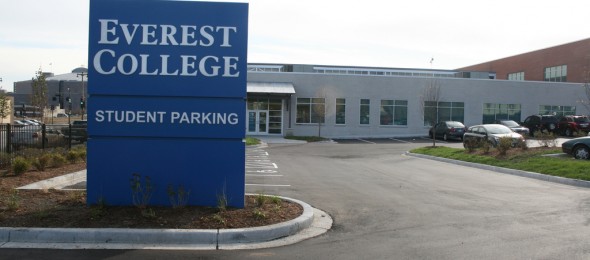The United States Department of Education recently proposed to adopt measures designed to constrain the use of mandatory arbitration provisions by for-profit colleges that receive federal student aid. According to a March 11th Department press release:
The U.S. Department of Education released today a proposal that would establish borrower-friendly processes for seeking and obtaining loan relief triggered by unscrupulous conduct by higher education institutions. The Department also provided options to negotiators that would protect students from the use of mandatory arbitration provisions in enrollment agreements.
The press release continued by stating:
The Department plans to discuss with the negotiating committee how to protect students from forced arbitration and incorporate crucial elements of state consumer protection laws in these regulations. Forced arbitration provisions used by many schools in their enrollment agreements – often buried in the fine print – effectively prevent students from seeking redress for harm caused by their school and hide wrongdoing from the Department and the public. Such agreements often bar students from bringing their legal claims in a group, making it financially impossible for individual students to challenge schools. Some agreements require disputes to be filed in secret tribunals where little or no records are kept; some prohibit students from speaking about the claims they file. The Department will discuss with negotiators how to end such outrageous practices.
“The Department is working to ensure that no college can dodge accountability by burying ‘gotchas’ in fine print that blocks students from seeking the redress they’re due. Legal aid, veteran, consumer, and student advocacy groups have all shared with us how mandatory arbitration has harmed students across the country. We heard them and agree. Which is why we’ve incorporated ideas from non-federal negotiators to limit mandatory arbitration agreements,” said Under Secretary Ted Mitchell. “These efforts build on our work to protect students and require institutional accountability.”
In a three-session “Negotiated Rulemaking for Higher Education 2015 – 2016,” the Department reportedly first considered a proposal that would ban for profit higher education institutions from utilizing mandatory arbitral provisions in contracts with students. On March 18th, however, the Department of Education ultimately proposed to adopt Option A of the draft Regulation Section 685.300. The text of Option A states:
§ 685.300 Agreements between an eligible school and the Secretary for participation in the Direct Loan Program.
(a) General. Participation of a school in the Direct Loan Program means that eligible students at the school may receive Direct Loans. To participate in the Direct Loan Program, a school must–
(1) * * *
(10) Provide that the school will not charge any fees of any kind, however described, to student or parent borrowers for origination activities or the provision of any information necessary for a student or parent to receive a loan under part D of the Act or any benefits associated with such a loan;
(11) Provide that:
(i) The school will notify the Secretary upon the submission of the initial filing of any claim, whether in arbitration or in a court, asserted by a student, whether as an individual or as a member of a class, or by a governmental agency, based on any act or omission of the school attended by the student that relates to the making of a Federal loan or the provision of educational services financed by that loan;
(ii) The school will not compel, through the use of pre-dispute mandatory arbitration agreements or any other means, arbitration of any such claims asserted by students in cases filed in a court on behalf of a class unless and until class certification is denied or the class claims are dismissed;
(iii) The school will allow any borrower to resolve any claim described in paragraph (a)(11)(i), if in arbitration, in person or by electronic means;
(iv) The school will not compel any borrower to resolve any claim described in paragraph (a)(11)(i), in a court whose district does not include the school;
(v) If the school enters into arbitration or requires arbitration with any borrower on a claim described in paragraph (a)(11)(i), it will ensure that–
(A) The Secretary receives a copy of each filing by any party and each order, ruling, decision or other written document produced by the arbitrator, within 10 days of the filing, in the case of a filing by the school, or the school’s receipt of the filing, order, ruling, decision, or other written document, in any other case;
(B) The proceedings in such arbitration are open to the public and recorded and transcribed with such recordings and transcriptions available to the Secretary upon request;
(C) No party is prohibited from speaking, writing, or otherwise communicating about the claims at issue or any other matter related to the arbitration, except that the parties to the arbitration may agree not to reveal the terms of any settlement;
(D) Multiple borrowers may bring common claims in one arbitration proceeding, provided they would meet the requirements for bringing such common claims that would apply in the United States district court for the district in which the school is located; and
(E) If the school has the right to bring any type of claim outside of arbitration, the borrower has an equivalent right to bring such claims outside of arbitration; and
(12) Comply with other provisions that the Secretary determines are necessary to protect the interests of the United States and to promote the purposes of part D of the Act.
Disputing would like to thank Mark Kantor for alerting us to the Department of Education’s proposed mandatory arbitration-related regulation.
Photo credit: compujeramey via Foter.com / CC BY














